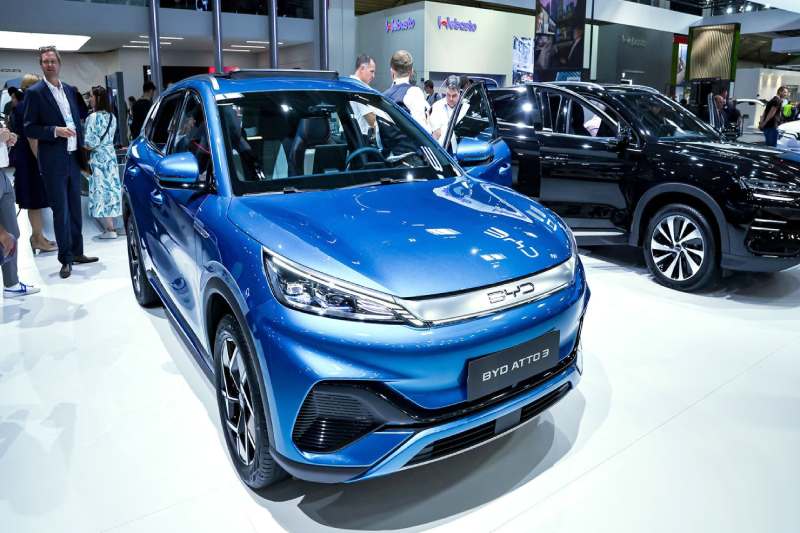
More electric vehicles are sold by China’s BYD than by Tesla
- Business
- January 3, 2024
In the last quarter of 2023, BYD surpassed Tesla to take the top spot as the world’s largest electric vehicle manufacturer.
According to a stock exchange filing, the Chinese company sold a record number of cars last year, including 525,409 battery electric vehicles (BEVs) in the three months leading up to December 31. According to Tesla, it delivered 484,507 units during the quarter, which is also a record.
With 1.8 million electric vehicle sales, Elon Musk’s Tesla (TSLA) still outsold BYD for the entire year. In addition to 1.44 million hybrid cars, BYD sold 1.57 million electric cars, a 73% increase over 2022.
However, this indicates that Tesla’s lead over its Chinese competitor was much closer in 2023—at roughly 230,000 units—than it was in 2022—when 400,000 units were recorded.
Warren Buffett’s support for BYD’s explosive growth serves as a metaphor for China’s burgeoning electric vehicle market.
China’s move toward electric vehicles is moving along swiftly because of the industry’s robust government support. Additionally, its automakers have been aggressively entering the European market, alarming long-standing rivals like Volkswagen and Renault. Chinese state subsidies are the subject of an investigation by EU policymakers.
Beijing has set a goal to have new energy vehicles (NEVs), which include BEVs, plug-in hybrids, and hydrogen fuel cell vehicles, account for at least 20% of all new cars sold in China by 2025. The government states that NEV sales should move into the “mainstream” of new car sales by 2035.
About three years early, in 2022, the first goal was accomplished. It’s possible that the second will arrive sooner than anticipated.
Data released last month by the China Association of Auto Manufacturers shows that 8.3 million new energy vehicles were sold in the first 11 months of 2023, making up over 30% of all car sales.
According to state media, Miao Wei, a former minister of China’s Ministry of Industry and Information Technology, stated in November at an automobile forum that the government’s goal of having 50% of vehicles on the road by 2035 is probably going to be accomplished by 2025 or 2026 at the latest.
Analysts claim that China’s dominant supply chain, large labor pool, and market size all contribute to its leading position in the global industry.
“China is now leading in production and increasing its comparative edges, banking on its massive domestic market and the first mover advantage,” analysts from Natixis Asia, a French investment bank, wrote in a report in late November.
Chinese EV manufacturers have found it simple to grow both domestically and internationally, they claimed, thanks to their first mover advantage and government support in the form of infrastructure investments and subsidies.
But last year’s fierce pricing war and heightened competition hurt many automakers’ profit margins.
Automakers were worried about a slowdown in demand as China’s economy lost steam. Tesla started a price war in January when it lowered prices in China in an effort to draw in customers and halt its declining growth. To stay competitive, dozens of automakers adopted a similar strategy.
Sales have increased as a result of the price war, but industry profitability is at risk. China’s car industry reported a profit margin of just 5% for the first eleven months of last year, which was less than 2022’s 5.7% and 2021’s 6.1%, according to data released by the Chinese Passenger Car Association, an industry group supported by the government.
Chinese automakers have been looking for growth outside of the mainland by expanding in Southeast Asia, Europe, and Australia to counteract the slowing domestic market.
In September of last year, BYD sent a sizable delegation to a car show in Germany. At the time, a company spokesperson stated that the company planned to increase its dealer network in Europe by 50% by 2023 and increase its foreign sales to 250,000 from roughly 56,000 in 2022.
It declared last month that it would establish its first passenger car plant in Europe in Hungary, an EV factory. In Komárom, Hungary, it already operates a bus factory.